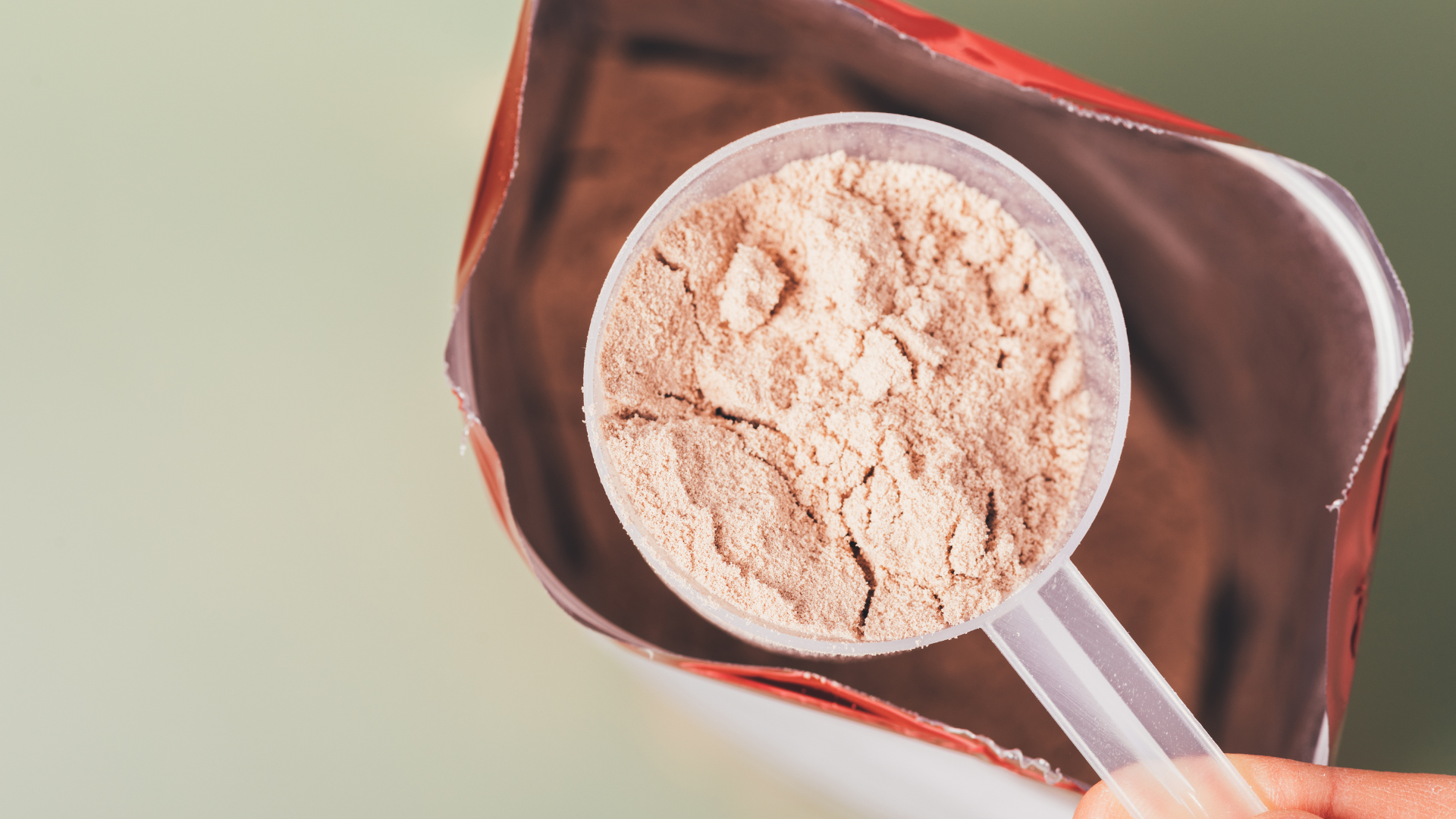Protein plays an important role in keeping your body strong—it helps repair and build tissues, supports your immune system, and provides energy. It’s a key part of staying healthy and feeling your best. Many people choose to supplement with protein to boost their intake. Whether they’re not getting enough through food, trying to build muscle, manage weight, or for a variety of other reasons. When it comes to supplementation, there are typically seven common protein options to choose from: whey concentrate, whey isolate, casein, egg white, soy, pea, and hemp protein.
-
Whey concentrate and whey isolate protein options
Whey concentrate is a milk byproduct and is the most popular type of protein available in stores. This type of protein enters the bloodstream faster than any other type of protein supplement. It is also considered the most effective protein supplement for building muscle. It is best to consume whey protein within an hour after your workout.
You may be wondering- what is the difference between whey concentrate and whey isolate? Whey isolate goes through a process in which the carbs and fats are removed. Whey isolate contains less than 1% fat content while whey concentrate typically contains up to 10% fat. Due to the processing for whey isolate, there is a higher percentage of protein in the end product.
When debating between whey isolate and whey concentrate, think about 1) are you lactose intolerant, 2) are you trying to lose weight, 3)what is your budget? If you are lactose intolerant or are trying to lose weight, whey isolate is the protein for you. If you are not lactose intolerant and on a budget, whey concentrate would be the protein for you.

-
Casein protein
Casein protein is similar to whey, as it is a protein found in milk. When consumed, casein forms a gel-like texture in the stomach which makes it more difficult for digestive enzymes to break down. This leads to a slower digestion/absorption. Due to the slower digestion and absorption rate of casein, athletes typically take casein in the evening. The slow digestion of casein has been shown to be beneficial for muscle recovery and provide a steady stream of amino acids to the muscles. Especially during periods of fasting (i.e. while you are sleeping).
-
Egg white protein
Egg white protein is derived from dried egg whites that are then turned into a powder. It is not as effective as casein or whey in terms of protein synthesis. Although, it does have significantly less carbs and fat than whey concentrate or soy protein. Egg white protein is comparable in nutrition to that of pea protein. This is a good option for those who are allergic to dairy or want a protein powder that keeps you feeling fuller.
-
Plant-based protein options
Popular protein options for those who are vegan/vegetarian or lactose intolerant include soy protein and pea protein.
- Soy protein is made from soybeans which contains all the essential amino acids, but whereas whey protein is higher in leucine and methionine, soy protein is higher in arginine, phenylalanine, and tryptophan. It is recommended that those who have a history of breast cancer, kidney disease, hypothyroidism, or uterine cancer should avoid large amounts of soy. In these cases, pea protein is the safer plant based protein option.
- Pea protein is made from yellow peas. While pea protein is a good alternative for anyone with a sensitive stomach, it’s not a complete protein like soy. Pea protein is higher in fiber and vitamin C, while soy protein is higher in iron. Pea protein is derived from peas which is a legume, so if you have an allergy to peanuts or chickpeas, you should avoid taking pea protein.
Both soy and pea protein are high in protein content and good plant based protein options. Pea protein and soy protein are shown to promote muscle growth and improve bone health. Again, it is recommended that those who have a history of breast cancer, kidney disease, hypothyroidism, or uterine cancer should avoid large amounts of soy. In these cases, pea protein is the safer plant based protein option.

5. Hemp protein
Hemp protein is derived from hemp seeds and is considered a complete protein. While it is a complete protein, it does have the lowest amount of available protein out of the options listed. While it may contain less protein than the other options listed, it does contain a good source of fiber, iron, magnesium, zinc, and omega-3 fatty acids. Hemp protein is a good option for those looking to boost their nutrient intake. However, it may not be the best option for those who are trying to build muscle.
Conclusion
If you’re looking to increase your protein intake, each of these seven supplement options is a great choice! Whether your goal is to build muscle, maintain your weight, or simply boost your intake because you’re not getting enough protein in your daily diet, supplementing can play an important role in keeping your body healthy and strong.
If you have any questions about protein intake, dietary needs, or overall health and wellness, feel free to contact our Midland, Freeland, or Saginaw, MI locations. Our team is highly knowledgeable and ready to help you achieve your goals!

